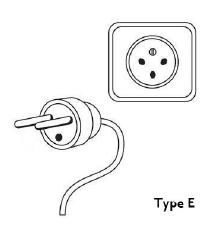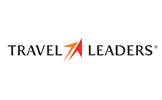CZECH REPUBLIC

Fun Facts From Globus Tours
![]()
- Czech people are the world’s greatest consumers of beer per capita
- The Czech Republic became a member of N.A.T.O. in 1999 and of the European Union in 2004
- The Czech Republic is the second-richest country (after Slovenia) of the former Communist Bloc
The Czech Republic boasts a magnificent heritage of castles, medieval towns, palaces, churches, and above all, its romantic capital, “Golden” Prague. It is a relatively small country in Central Europe (30,000 sq. miles) composed of Moravia with its endless fields and vineyards, Bohemia, which is highly industrialized but also famous for its beers, and Moravian Silesia with its iron industry and coal mines. All over the Czech Republic you can visit many elegant spa cities.
For over 1,500 years, the history of the Slavic Czechs (the name meaning “member of the clan”) was influenced by contacts with their western, German neighbors. According to popular belief from ancient times, the Slavic Premysl royal family was replaced by the Luxemburg family in the first half of the 14th century after assassination of the king Wenceslas III. Charles IV, the Holy Roman Emperor, brought prosperity to the land. Jan Hus, the early church reformer who was burned at the stake for heresy, founded the first Reformed church here almost 100 years before the Lutherans. The Hapsburgs started to rule the state from the first half of the 16th century; they managed to quell the Protestant spirit of the nation temporarily but were powerless against the surge of national feelings in the 19th century, which resulted in the foundation of Czechoslovakia following WWI—a foundation which lasted for 74 years (until the end of 1992). After WWII (from 1948) the country was ruled by Communists for 41 years until the Velvet Revolution in fall of 1989.
Czech cuisine is an interesting blend of neighboring influences from Germany, Austria, and Hungary. Meat is considered law; the local venison and wild boar is delicious, as are dishes with sauces and dumplings (the most typical local side dish in many variants). Shoppers will not be disappointed either; highly valued Bohemian crystal, jewelry with unique Czech garnets, and classical music all make good buys.
VISAS, PASSPORTS, AND OTHER ENTRY REQUIREMENTS
Visas to Czech Republic are not required for US citizens. If you hold a passport from another country, please check with your local consulate about requirements for travel to Czech Republic. All passengers traveling internationally are required to have a passport. Please carry proper identification (your passport) on you and do not leave it in your suitcase or hotel room.
It is advisable to carry your passport with you at all times.
COUNTRY CODES
The country code for Czech Republic is 420. When calling to Czech Republic from overseas, dial your international access code (011 from the US/Canada), followed by the country code, area code, and phone number. Phone numbers in Czech Republic are nine digits in length. Dialing from the US/Canada: 011 420+ ### ### ###.
CURRENCY
Throughout the Czech Republic, the currency is the Ceska Koruna (Czech Crown). The currency code is CZK.
Bank hours: 8 a.m. to 3 p.m., Monday through Friday.
1 CZECH KORUNA (CZK)= 100 Hellers/Haleru
- Banknote denominations: 100, 200, 500, 1000, 2000, 5000 CZK
- Coin denominations: 1, 2, 5, 10, 20, 50 CZK
For the most current exchange rates, please go to our website at Globusjourneys.com/Currency. Euro are becoming more widely accepted in the Czech Republic, but the majority of shops and restaurants only accept and give change in Czech Crowns (some places may provide change in Euro). Credit cards are widely accepted (mostly Visa and MasterCard), and you will have no issues using them.
BUDGETING AND SHOPPING
The following budget guidelines are just approximate values or starting values for meals and are per person. Actual prices will vary widely by restaurant and city within a country but below are some averages as provided by our experienced personnel.
- The approximate cost of a soft drink/mineral water/coffee is 30-60 CZK.
- An average lunch consisting of a salad or sandwich and a soda or water starts at approximately 150-250 CZK.
- Dinner at a mid-range restaurant with dessert and a non-alcoholic beverage starts at approximately 400-600 CZK.
Please note that soft drinks and mineral water are often as expensive, if not more expensive than wine or beer. (The approximate cost of a 500ml glass of beer is 25-40 CZK).
It is not advisable to visit restaurants/bars promoted by taxi drivers or people on the street. In order to avoid scams in restaurants/bars, ask to see the menu and prices before ordering. If paying by credit card in restaurants, check beforehand which cards are accepted (usually displayed on signs next to the entrance). It is not uncommon for strangers to share tables with each other in the Czech Republic.
Shopping specialties: Bohemian crystal, artistically designed multicolour glass, jewelry with unique Czech garnets, linen, classical music CDs.
Counterfeit and pirated goods are widely available; be aware that under local law transactions involving such products may be illegal, and bringing them home may result in confiscation and fines.
Sales tax or VAT (value added tax) is included on price tags. To obtain VAT refunds (which may take up to three months to process) special forms usually have to be stamped by Customs; please ask for a taxfree shopping form with each purchase and follow the instructions for completion; not all shops may offer this service, and minimum amounts may apply. Customs import charges on items shipped home are not included in purchase prices.
TIPPING
- Tipping in restaurants in the Czech Republic is not obligatory, but it is commonly welcomed. A tip of 5- 10% is a reasonable amount, 15% if you feel the service was exceptional. Tips are usually left in cash and not added to the credit card payment, given directly to the waiter and not left on the table.
- For taxis, we recommend you round up the fare to the nearest whole 10 and add 20 CZK as a tip.
- Tip hotel staff 50 CZK for room service.
- Small change, 5, 10, and 20 CZK will be needed for public toilets. In restaurants and cafés toilets are free of charge.
ELECTRICITY AND ELECTRICAL OUTLETS
Outlets
Voltage for outlets is 220V. North American voltage is generally 110V. Therefore, you will need a converter for your travels. Adapters will be necessary to adapt your plug into the outlet, but these may not convert the voltage, so both devices are necessary.

TEMPERATURES
Czech Republic has warm, wet summers and mild winters.Weather can be unpredictable in spring and fall, so pack mixed layers for all eventualities. To help you plan, below are average low and high temperatures for Czech Republic.

To convert to Celsius, subtract 30, then divide by 2. While not exact, this simple formula will give a close estimation.
CUSTOMS and CULTURE
Be aware of cultural and behavioral differences in Eastern Europe; you may not be greeted as cheerfully as back home; smiling is generally reserved for intimate friends! So be especially wary of people presenting themselves as “instant friends” and never accept any offer of food or drink from strangers.
FOOD SPECIALTIES
Meat in general (particularly pork, poultry, beef, venison, and wild boar), dishes with sauces, and dumplings, beer, Becherovka herbal liqueur.
CUSTOMS and CULTURE
Be aware of cultural and behavioral differences in Eastern Europe; you may not be greeted as cheerfully as back home; smiling is generally reserved for intimate friends. So be especially wary of people presenting themselves as “instant friends”, and never accept any offer of food or drink from strangers.
FEW WORDS OF THE LOCAL LANGUAGE
Bulgarian (transliteration)
![]()
Hello!: Nazdar!, Good morning/afternoon: Dobry den, Goodbye: Na schledanou, Please: Prosim, Thank you: Dekuji, Yes: Ano, No: Ne, , 1: Jeden, 2: Dva, 3: Tri, 4: Chtiri, 5: Pet, 6: Shest, 7: Sedm, 8: Osm, 9:Devet, 10: Deset, Where is…?: Kam/kde…?, Telephone: Telefon, Tea: Czaj, Coffee: Kafe’, Bottled water: Lahev vody, Cheers!: Na zdravi!, Restaurant check/bill: Účet, Have a nice day!: Hezky den!
U.S. DEPARTMENT OF STATE COUNTRY INFORMATION
Additional country-specific information for US citizens can be found on the US Government’s website www.travel.state.gov. Here, you can find the most up-to-date information about destination descriptions, passports/visas, safety and security, transportation, travel local laws, alerts/warnings, vaccinations, and more. For citizens of other nations, we recommend you consult your local consulate for travel information, regulations, and requirements.









